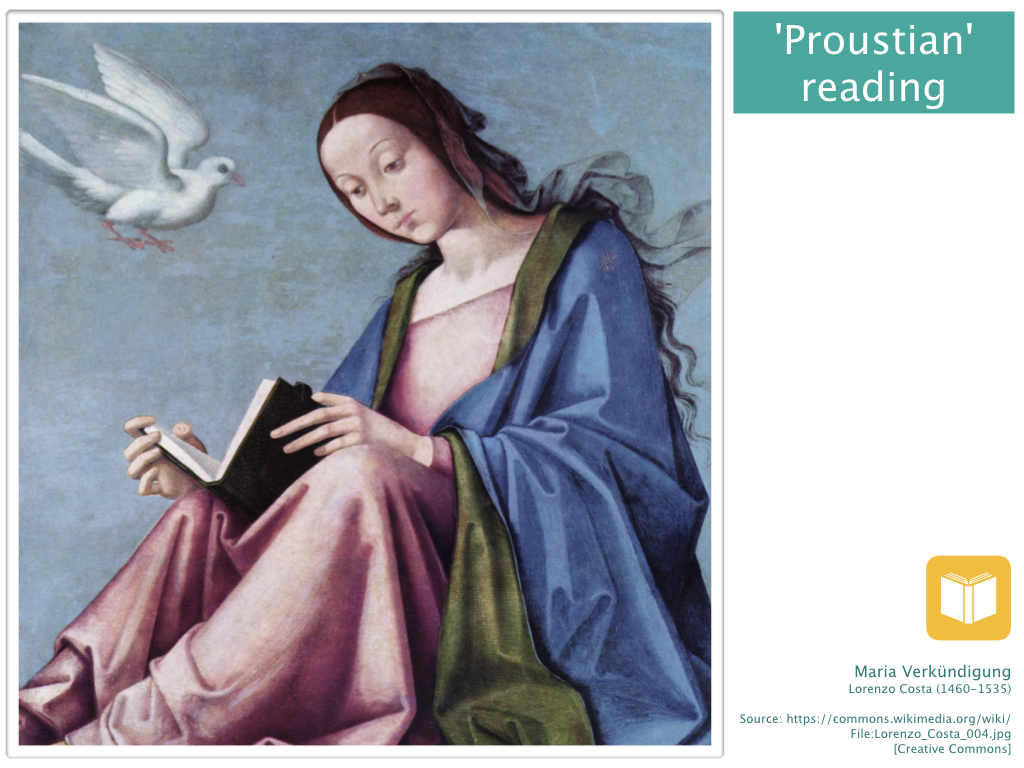Reading Three Ways
Reading Three Ways
This resource draws from the three kinds of reading Paul Griffiths explores in his book Religious Reading: The Place of Reading in the Practice of Religion (OUP, 1999): academic reading, 'Proustian reading' and 'Victorine reading'. The resource invites you to read a single text (Augustine's Confessions) three times using a different mode of reading each time.
3. 'Proustian' reading

As you read this time, as we move from the academic into the Proustian, you'll need to read the extract again, though the different lens of pleasure. When you re-read the first pages of Confession, shift your attention away from trying to work out what Augustine is saying and whether you agree or disagree with Augustine's words. Think less about how you might excavate the text for meaning and significance. Think not about explanation and analysis but read this text for pleasure. Allow Augustine's words to soak in. Pay less attention to what Augustine is saying and more to how he's communication, to the way he's saying what he's saying. Be attentive to the words themselves; to the form his ideas take. Think about the aesthetics. Imagine the picture Augustine is painting. If you're familiar with Ignaitian patters of praying Scripture, try planting yourself in Augustine's mind, imagining that you are there as Augustine is writing. Think of yourself as the eavesdropper: the one who listens in on Augustine's conversation with God. This is Proustian reading. As Nicola Slee writes,
Proustian reading, by contrast, is reading for pleasure, for reverie, for sensual, aesthetic and very likely sexual enjoyment. The content of the book is secondary to its style and its rhetorical and physical effects upon the reader. Reading is a tool of self-development, not so much training of the mind – as in the first approach – as inculcation of aesthetic sensibilities.
Re-read Augustine's writings in this pleasurable mode. Take time. Don't rush. Read and read again. Be attentive to what difference this shift from the 'Academic' to the 'Proustian' makes to your relation with the text, with Augustine. Are you understanding in a different mode? Are you experiencing the reading differently?